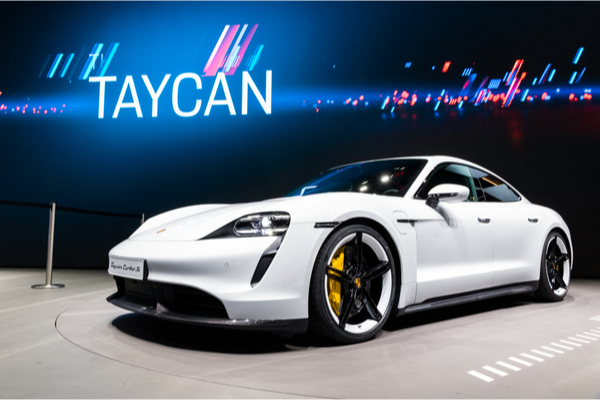The Super Bowl is always a vehicle for auto ads, but Super Bowl 54 was the year of the electric vehicle. In previous years, there had never been more than one E.V. ad in the Super Bowl. This year, there were four.
In a year when Fox reaped $5.6 million for a 30-second ad, Porsche shelled out for a 60-second ad promoting its electric sports car, the Taycan; Audi ran a 60-second spot with “Game of Thrones” star Maisie Williams singing “Let It Go” from Disney’s “Frozen” while driving the e-Tron Sportback electric SUV (the message: Let your gas-guzzler go); GM hired LeBron James to push the electric Hummer in a 30-second ad; and Ford re-ran its 60-second ad with actor Idris Elba talking up the forthcoming Mustang Mach-E (an ad that had been airing before the Super Bowl).
Unfortunately for Porsche, Audi, GM, and Ford, none of their E.V. spots commanded the same positive reaction that Jeep and Hyundai did with ads for non-electric cars.
Jeep won the day with its 60-second ad for the (non-electric) Gladiator pickup truck, in which actor Bill Murray re-lives “Groundhog Day” with a groundhog pal. The spot was ranked first in surveys across the board, including Adweek, USA Today’s ad meter, and a survey of top ad execs by the chat app Fishbowl. 41% of ad execs in Fishbowl’s survey liked Jeep’s ad best, edging out 31% for Google’s ad in which an elderly man records voice memos about his wife Loretta.
USA Today ranked Hyundai second for its star-studded ad using Bostonians Chris Evans, John Krasinski, Rachel Dratch and David Ortiz to promote the (non-electric) Sonata’s “smart park” system. (Fox News ranked the Hyundai spot No. 1, and Jeep No. 2.)
And if you ask car blog Electrek, it was Tesla that won Super Bowl weekend without spending any money on a Super Bowl ad, since a large number of NFL players said in interviews before the game that Tesla is the hottest car right now among players. Tesla has been riding high already in 2019. The stock hit another all-time high on Monday, and if Tesla’s market cap stays above an average $100 billion for six months (including 30 days straight), CEO Elon Musk stands to score a $370 million bonus.
—
Photo Credit: VanderWolf Images / Shutterstock.com
